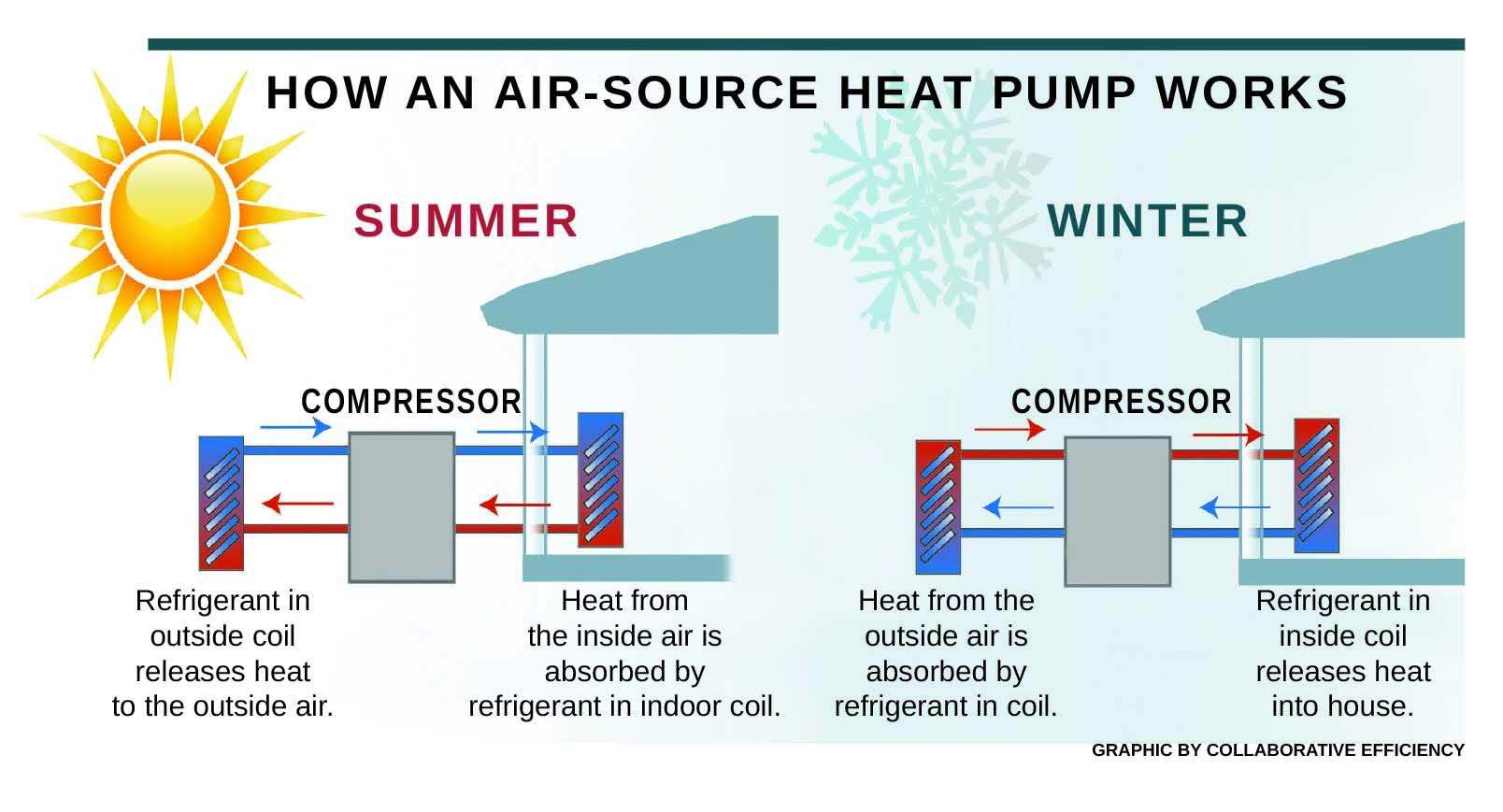By Pat Keegan and Brad Thiessen
If replacing your furnace seems to be on the near horizon, especially with colder weather a calendar page away, you might wonder what might be some economical options. For most of us, heating and cooling accounts for the largest part of our household energy use.
An electric air-source heat pump can be a good alternative to a furnace system that runs on propane or fuel oil. A heat pump is also a cost-effective alternative to electric resistance heat that is used in electric furnaces and in baseboard and wall units.
How heat pumps work
In the summer, an air-source heat pump acts as an air conditioner that draws heat from your home’s air and transfers it outside. In the winter, the system’s direction is reversed so that heat is pulled from the outside air and moved into your home.
The heat pump has two major components: the condenser (also called the compressor) that circulates refrigerant through the system; and an air handler that distributes the conditioned air. Most heat pumps are split systems, with the condenser located outside and the air handler inside. Heat pumps usually distribute the hot or cold air through the duct system.
In the past, heat pumps weren’t efficient enough to work in colder climates. In recent years, however, technology has advanced to make them viable in climates with long periods of sub-freezing temperature.
If your old furnace has an air conditioner attached, replacing both the heating and cooling system with the all-in-one solution of a heat pump might produce significant cost savings. If you are currently cooling with window units, or have an older central AC, moving to an air-source heat pump could reduce your summer energy bills.
Heat pumps not only reduce energy costs, they can also eliminate the risk of carbon monoxide poisoning and problems that can occur with on-site storage of propane or heating oil.
Heat pumps must work harder to extract heat as the outside temperature drops. At some point the heat pump switches to resistance mode, which operates the same way a toaster or an electric baseboard heater works. If your area has very cold winters, you should consider a dual fuel system, which utilizes a heat pump along with a gas or propane furnace.
Savings
How much a heat pump can reduce your energy costs depends on the size and efficiency of your home, local energy prices and local climate. You can find calculators online that can help you predict energy savings.
Also, be sure to contact your local electric cooperative. Your co-op either has energy auditors on staff or can direct you to ones in your community who can predict energy savings with greater precision, and they can offer advice on choosing a specific brand and size of the unit. More importantly, energy auditors can suggest other ways to improve comfort or reduce energy use such as duct sealing or insulating the building envelope.
Contact your local electric co-op, too, to find out if it is offering rebates or discounted rates for electric heat.

This column was co-written by Pat Keegan and Brad Thiessen of Collaborative Efficiency. For more ideas on energy efficiency, please visit: www.collaborativeefficiency.com/energytips.



